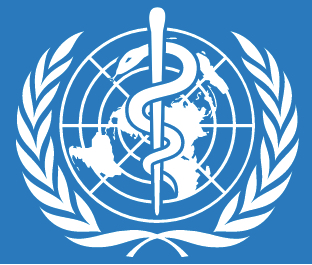Addressing COVID-19 Safely Onboard
Two months ago, vessels started receiving warnings from vessel managers, P&I clubs, port health officials and others regarding the novel coronavirus outbreak and subsequent infections with COVID-19 in areas of China. The original warnings and cautions addressed vessels and crews that had called Chinese ports and rapidly started spreading to neighboring countries/transshipment ports such as Singapore and Japan.
How sixty days have changed the world! Today, it will be difficult for merchant ships to call in many ports without extensive pre-arrival checks and assurances that there are no COVID-19 cases onboard. This is to eliminate individual ships as pandemic infection vectors.
Mariners were last negatively impacted by disease outbreaks with the Ebola outbreak in West Africa between 2013 and 2016. Vessels were required to submit Ebola declarations in many ports to ensure port officials that they weren’t carrying the virus to their shores.
To say there is a plethora of guidance out there now regarding COVID-19 is an understatement, but the threat is real for vessels calling at multiple ports and interacting with port workers and officials. For our crews’ safety and continued operation of our vessels, please consider the following advice:
From American Waterways Operators (AWO) comes the following advice :
BEFORE BOARDING THE VESSEL:
1. Encourage crewmembers to monitor their health and report fit for duty.
-
- 1.1 Develop and deploy a questionnaire for crewmembers prior to embarkation.
- Questions may include:
- Do you have a fever (100.4˚ F/37.8˚ C or above), feel feverish, or have any other signs or symptoms of acute respiratory illness (cough, difficulty breathing or shortness of breath)?
- Have you traveled to an area experiencing ongoing community spread of COVID-19?
- Have you had close contact with (provided direct care to, worked in close proximity to, shared a room with, traveled with, lived in the same household as) a person confirmed or suspected to have COVID-19?
- Questions may include:
- 1.2 Crewmembers who answer questions affirmatively or show signs or symptoms of acute respiratory illness should be told to remain at home or be sent home.
- 1.1 Develop and deploy a questionnaire for crewmembers prior to embarkation.
2. Take steps to minimize crewmembers’ exposure when traveling to and from crew changes.
-
- 2.1 If possible, facilitate crewmember travel by car as opposed to plane or train.
- 2.2 If travel by plane or train is necessary, encourage crewmembers to practice frequent hand hygiene, and if possible, maintain a distance of 3 feet from other travelers and 6 feet from people showing signs of sickness.
- 2.3 Consider providing ditty bags with hand sanitizer, disposable wipes and other products useful when traveling.
These and further recommendations for onboard precautions and actions to take for an infected crewmember can be found HERE.
The following safety precaution posters for COVID-19 are provided by BIMCO. They can be downloaded and printed onboard for use.



The links below will take you to additional information and links including guidance from the U.S. Coast Guard and Indian Directorate General of Shipping. The Indian DGS orders include some very specific guidance on personal protective measures and disinfecting of potentially contaminated areas. In this dynamic health threat environment, updates from the Centers for Disease Control (CDC) and World Health Organization (WHO) should be checked frequently. They are the best resources for accurate information and to dispel any misinformation or myths found on social media.
Let’s be safe out there!
Additional Reading and Links
American Waterways Operators (AWO) – Pandemic Information & Resources for the Towing Industry
Ship Operators Cooperative Program (SOCP) – Safety and Health – COVID-19
Madden Maritime – Novel Coronavirus/COVID-19 Resources


Shouldn’t the Ships also ask for a health declaration from the ports. It seems that the only concern is if the Ship’s crew is healthy and does not have a fever. Isn’t the probability of Pilots, agents and Longshoremen carrying the virus to the ship much higher?
This is an excellent point. A vessel’s crew is by nature isolated from outside influences. Past experiences with epidemics (think way back) involved vessel crews bringing disease to new lands as the ONLY disease vector. With air travel (and frequent air travel), the maritime disease vector is relatively insignificant in comparison.